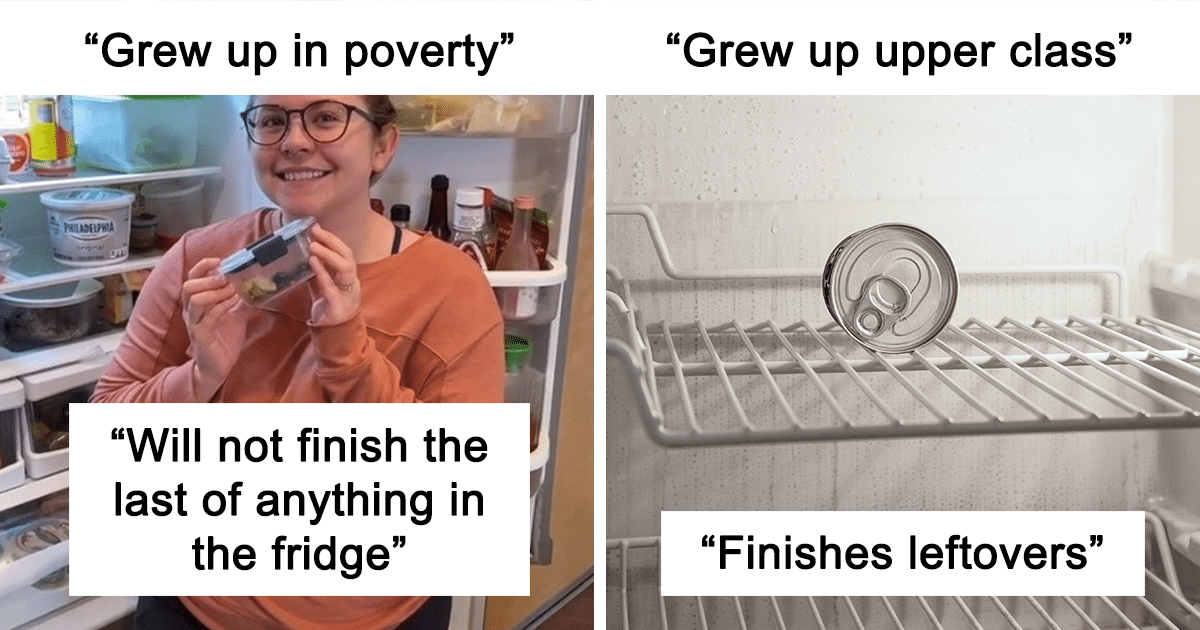A TikTok couple has highlighted the differences in behavior they exhibit as a result of growing up in different economic classes.
Husband and wife Michaela and Alex, who go by the username @cuddleswpuddles on TikTok, recently discussed how their early circumstances influenced their behaviors as adults in a three-part series.
To celebrate these differences, the couple shared their contradicting habits on TikTok which has been viewed almost 9 million times.
After noticing the differences in their habits, this couple released a series of TikToks that captures what it’s like to live with someone who comes from a different social class

@cuddleswpuddles All I could fit in 60s. #poverty #upperclass #lowerclass #middleclass #millennial #foodinsecurity #couple #marriage #ROMWEGetGraphic #fyp #foryou ♬ original sound – cuddles
#1

Alex grew up with only purebred poodles as his dogs. My childhood dog was a mutt from the pound. But together we adopted this pit bull mix from the county shelter in Atlanta.
In the paper titled ‘Is America coming apart?‘ the authors argue that income inequality and the gap between the rich and poor are at their “all-time high.” Hence the increasing segregation between different socioeconomic classes.
In order to find out if class differences affect intimate relationships — as highlighted in Michaela’s and Alex’s case — Jessi Streib, Duke University’s sociology professor and the author of ‘The Power of the Past: Understanding Cross-Class Marriages’, has dedicated his entire research to this. “So often we think about how class differences keep us apart,” Streib explained to us. “I wanted to know if and how they draw us together.”
After studying and extensively interviewing 32 couples in which one partner comes from a well-to-do family and the other from a “blue-collar” one —as well as 10 couples in which both partners grew up in the same economic class— Jessi was able to discover that “strangers who grew up in the same social class had more in common with each other than they did with spouses with whom they shared their lives.”
#2

When grocery shopping, Alex would always get the name brand. I had to teach him that store brand is just as good with a few notable exceptions.
Jessi thinks that the ‘opposites attract’ law, which not only applies to people’s personalities but apparently their upbringing in different socioeconomic backgrounds too, partly comes from problem-solving. “People in each class face a distinct set of problems, and sometimes those who grow up in other classes have the solutions,” she said.
“For example, people who grew up with white-collar parents often felt that their parents pushed them to have academic and extracurricular achievements.” Which, as most of us are aware, means being away from your beloved family — something that folks from the lower class get to experience less often due to a lack of funds or opportunities.
As Jessi explains, this is all connected because “people from white-collar backgrounds are then often drawn to people from blue-collar backgrounds because they see them as able to help them have the close family relationships they always wanted.”
#3
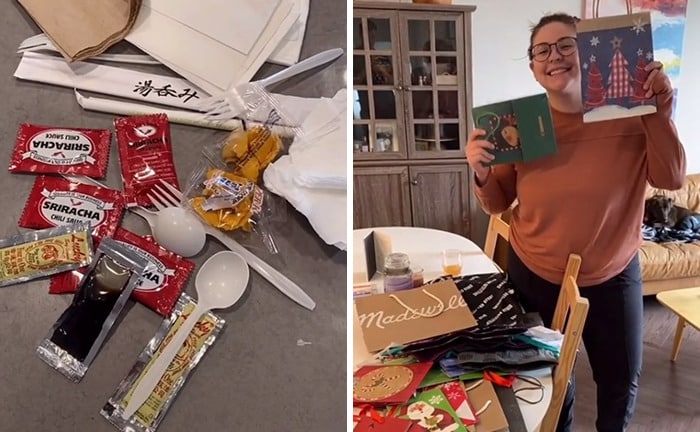
Michaela keeps everything from every takeout restaurant we’ve ever ordered from. There’s a whole drawer full of this stuff. She also keeps all of our gift bags which is great for holidays, birthdays, gift-giving, making it a lot easier.
#4
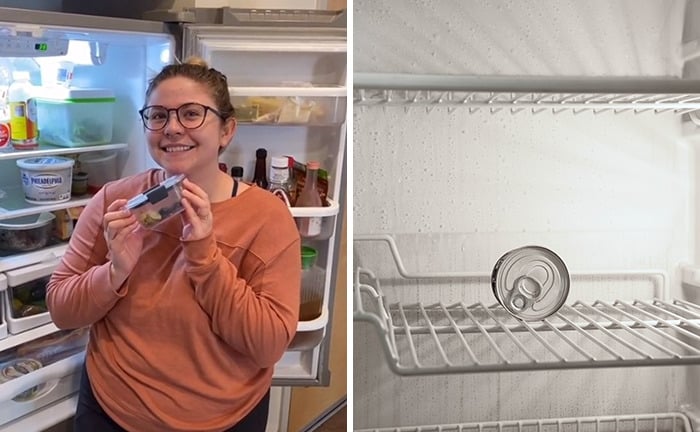
I like to finish all of our leftovers. Michaela will not finish the last of anything in the fridge. This is a byproduct of her growing up with food insecurity and not necessarily knowing where her next meal will come from.
The biggest hurdle that mixed-class couples faced, according to Jessi’s study, was the difference in planning and preparation. “The big difference that couples faced was whether to manage everything or to take it as it comes.”
To our own surprise, partners from wealthy families would usually take the lead. “They grew up with financial security and parents in positions of authority. This allowed them to be able to predict the future and want to try to control their surroundings,” Streib reasoned.
“People who grew up in blue-collar families often have less financial security and authority. So other people and events throw things at them, and they become very good at reacting. Seeing the future as unpredictable, they want to take things as they come.”
Or, to borrow a golden phrase from John Lennon: “Life happens when you’re busy making other plans.” As long as you’re making those plans together, despite the differences in habits and upbringing, that’s what matters in the end.
#5
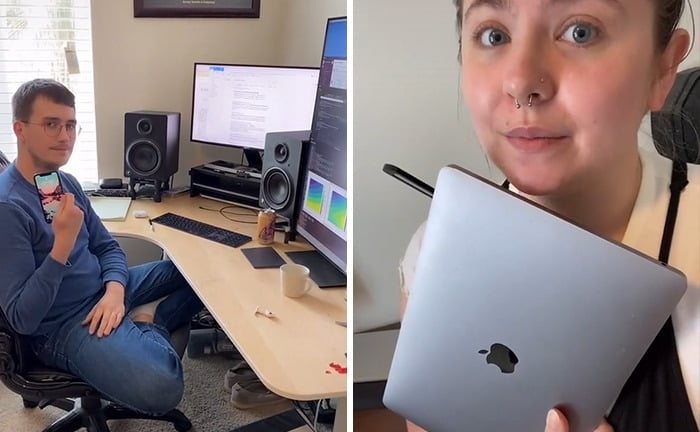
We are 26 and Alex has never bought a car, laptop, or cellphone himself. And I have purchased every car, laptop, and cellphone that I’ve ever owned.
#6
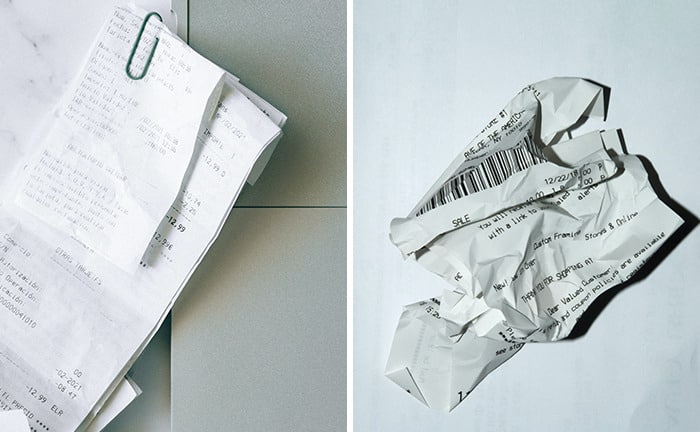
I keep all of my receipts in case there’s something wrong with something that I bought and have to return it. Alex doesn’t keep receipts because if there’s something wrong with what he bought, he’ll just buy another one.
#7

When eating a meal, I always finished my plate because I was not allowed to leave the table until I finished my plate and was told I was wasteful, if I didn’t. My husband will eat until he’s full like a regular human.
#8

Every time I leave a room and leave the light switch on, she will turn it off. Even if I’m going right back into that room a minute later.
#9
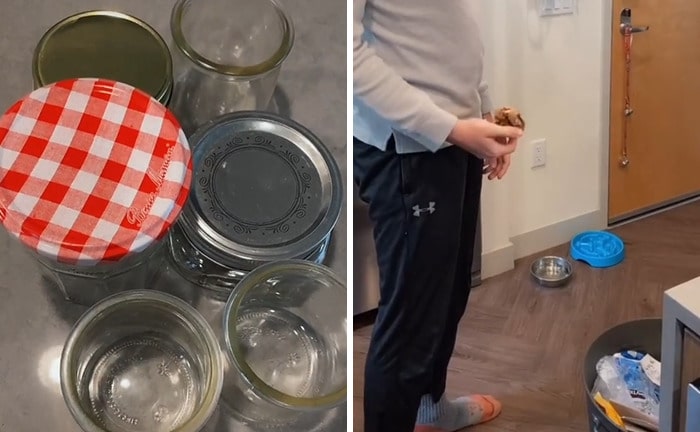
I have a collection of jars in case I can reuse them. I was taught to never throw anything away. And Alex will throw away or recycle stuff when he’s done with it.
#10
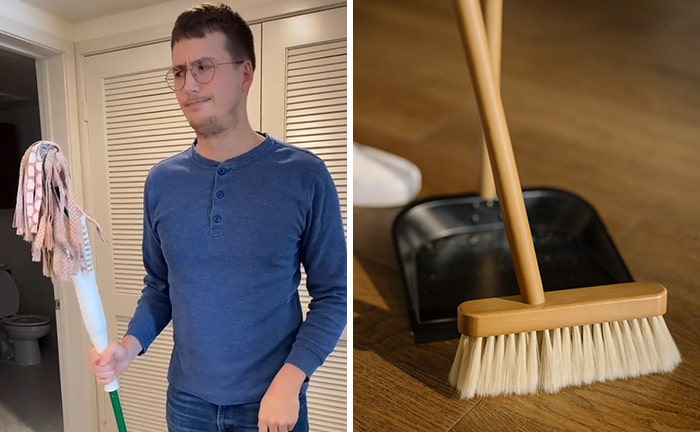
Alex is good at picking up but he’s not as good at cleaning because he always had to pick up for the cleaning service that he had his whole life. I’m better at cleaning because if I wanted something to be clean, I had to do it myself, but I am just naturally messier than he is.
A lot of viewers could relate to Michaela’s hardships and observations highlighted in their TikToks












